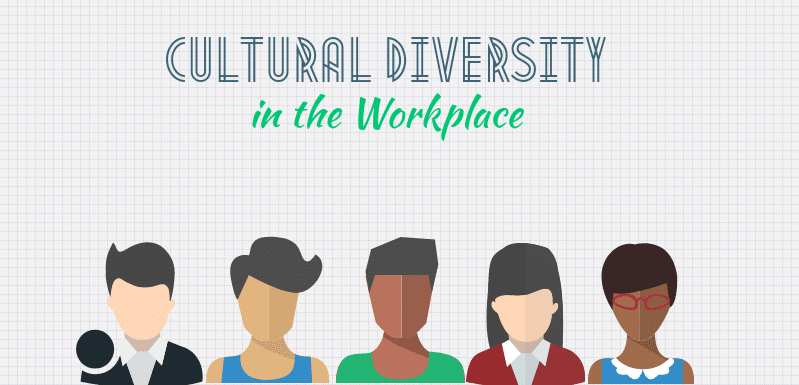
Why Cultural Diversity Benefits the Workplace
Increasing cultural diversity in your workplace isn’t just an “empty slogan” – according to the Harvard Business Review, cultural diversity in the workplace is beneficial to success.
It’s no secret that businesses across the globe are striving to diversify their spectrum of employees. It’s a non-question that the race, gender, and cultural background of a potential employee shouldn’t affect their chances of getting a job. Skill is skill, and talent is talent, and that is what determines who gets the job. Nevertheless, research from McKinsey & Co has shown that those workplaces with high levels of racial and ethnic diversity record better financial returns. In fact, of the 366 public companies they studied, those businesses in the top quartile of racial and ethnic diversity were 35% more likely to experience returns beyond their industry average. Those in the first quartile of gender diversity were found to be 15% more likely to experience returns beyond their industry average. Credit Suisse’s study of 2,400 businesses found that those with one or more female board members saw more increased return on equity and surged net income growth than those with no female board members.
Other recent research has seen a more general upside to diversity in the workplace – culturally mixed groups operate more intelligently. Working in cohesion with employees who are different from yourself appears to challenge the brain to extend beyond its typical thought processes. Cultural diversity in the workplace seems to have overarching benefits. So, why are diverse workplace teams more intelligent?
They Get the Facts
Research has shown that when grouped together, people of varying backgrounds can actually enhance each other’s ability to focus on the facts at hand. A study in the Journal of Personality and Social Psychology divided people up into culturally homogenous and non-homogeneous groups to sit as a mock jury. When it came time to give their verdicts, the non-homogenous groups stated far more facts in their deliberation, and made less factual errors. Another study in the PNAS Journal placed financially literate people into culturally homogenous and non-homogeneous groups to price stocks. The non-homogenous group was 58% more likely to correctly price the stocks. Culturally diverse groups tend to consistently e-examine facts objectively, and encourage examination of each other’s actions. As a result, they’re collectively more sharp and critical. When a workplace is culturally diverse, employees can be made more aware of their personal biases and habitual modes of thinking which could potentially hold them back from seeing vital information and cause errors.
They’re More Careful
The Harvard Business Review also suggests that more diversity leads to increased attention paid to the way in which decisions are made. Research published in the Personality and Social Psychology Bulletin by Katherine Phillips saw groups of students gather in groups to try and solve a detective case. The groups who consulted a member outside of their known associates had better success rates solving the case than those who didn’t. Consulting the ‘outsider’ or ‘newcomer’ of the group, although it might not seem logical at times, proved beneficial. The researchers believe that diverse teams can achieve more than non-diverse teams because they collectively are more considerate in their decision making.
More Innovation
We’ve detailed before just how important innovation is to the success of a business. It’s crucial, especially in today’s competitive market. The Harvard Business Review explains that research suggests that one of the most effective methods of transforming and adapting a business, and its product, can be to onboard more women and culturally diverse employees. Research published in Innovation: Management, Policy & Practice saw that companies with more female employees are more likely to come up with truly sweeping innovations. Other research published in Economic Geography came to the conclusion that cultural diversity correlates with increase innovation. Their examination of firms in the UK showed that organisations headed by cultural diverse teams were more likely to develop innovative products.
All in all, having a workforce powered by diverse minds reaps more considered, accurate and innovative work. Cultural diversity in the workplace is a step in the direction of success and innovation.